
The Enchanting Kagoro Hills of Nigeria
Nestled in the heart of Kaduna State, the Kagoro Hills offer a serene and captivating escape for nature lovers. The hills rise majestically from the landscape, providing breathtaking panoramic views of the surrounding countryside. The verdant greenery and fresh air make it an ideal destination for those looking to reconnect with nature and unwind from the hustle and bustle of city life. The Kagoro Hills are rich in cultural heritage, with the local Kagoro people known for their warm hospitality and vibrant traditions. Visitors can immerse themselves in the local culture, experiencing traditional dances, music, and crafts. The annual Afan National Festival, held in the hills, is a highlight, showcasing the rich cultural tapestry of the Kagoro community. Outdoor enthusiasts will find plenty to do, with opportunities for hiking, bird watching, and exploring the diverse flora and fauna. The hills are home to a variety of wildlife, making it a perfect spot for nature photography. For those seeking a bit of adventure, the challenging trails and rugged terrain offer an exciting experience for hikers and trekkers.
Local tips in Kagoro Hills
- Visit during the Afan National Festival to experience the vibrant cultural celebrations of the Kagoro people.
- Wear comfortable hiking shoes and bring a camera to capture the stunning landscapes and wildlife.
- Hire a local guide to enrich your experience with insights into the history and culture of the area.
- Carry enough water and snacks, as there are limited facilities in the hills.
- Respect the local customs and traditions, and always ask for permission before taking photos of people.
The Enchanting Kagoro Hills of Nigeria
Nestled in the heart of Kaduna State, the Kagoro Hills offer a serene and captivating escape for nature lovers. The hills rise majestically from the landscape, providing breathtaking panoramic views of the surrounding countryside. The verdant greenery and fresh air make it an ideal destination for those looking to reconnect with nature and unwind from the hustle and bustle of city life. The Kagoro Hills are rich in cultural heritage, with the local Kagoro people known for their warm hospitality and vibrant traditions. Visitors can immerse themselves in the local culture, experiencing traditional dances, music, and crafts. The annual Afan National Festival, held in the hills, is a highlight, showcasing the rich cultural tapestry of the Kagoro community. Outdoor enthusiasts will find plenty to do, with opportunities for hiking, bird watching, and exploring the diverse flora and fauna. The hills are home to a variety of wildlife, making it a perfect spot for nature photography. For those seeking a bit of adventure, the challenging trails and rugged terrain offer an exciting experience for hikers and trekkers.
When is the best time to go to Kagoro Hills?
Iconic landmarks you can’t miss
Assop Falls
Experience the breathtaking beauty of Assop Falls, a serene waterfall in Plateau State, Nigeria, perfect for nature lovers and adventure seekers alike.
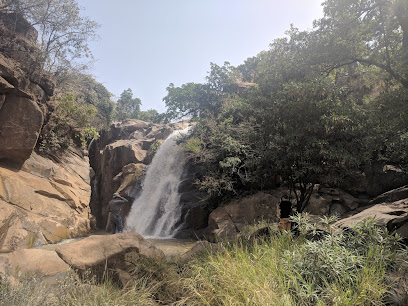
Matsirga Attat Waterfalls
Explore the enchanting Matsirga Attat Waterfalls in Kafanchan, Kaduna – a hidden gem of nature's beauty and cultural richness.
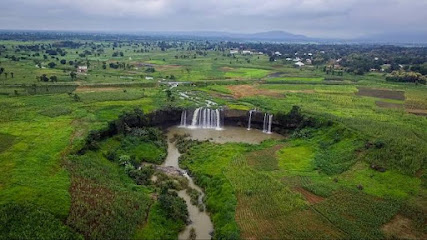
Kagoro Hilltop
Explore the breathtaking views and cultural richness of Kagoro Hilltop, a must-visit tourist attraction in Kaduna, Nigeria, perfect for nature lovers and adventurers.

Unmissable attractions to see
Assop Falls
Experience the breathtaking beauty of Assop Falls in Plateau State, Nigeria, a hidden gem for nature lovers and adventurers alike.
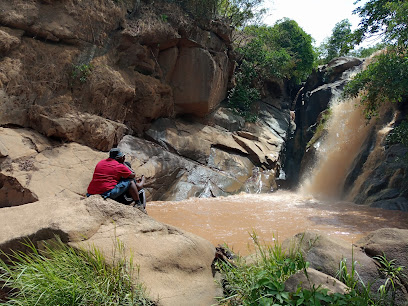
Riyom Rock
Explore Riyom Rock, a breathtaking natural landmark in Nigeria's Plateau region, perfect for adventurers and nature lovers seeking stunning views.
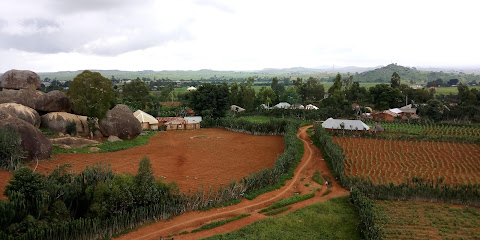
Richard Crops and Animal Rearing
Experience the charm of agriculture and animal husbandry at Richard Crops and Animal Rearing in Kaduna, a unique animal park for the whole family.

Sanga River Forest Reserve
Explore the natural beauty and diverse wildlife of Sanga River Forest Reserve, a serene oasis in Kaduna, Nigeria.

Essential places to dine
Spring Valley Restaurant, Bar & Guest House
Experience the warmth and flavors of Nigeria at Spring Valley Restaurant, Bar & Guest House in Bar Jirgi Summa.
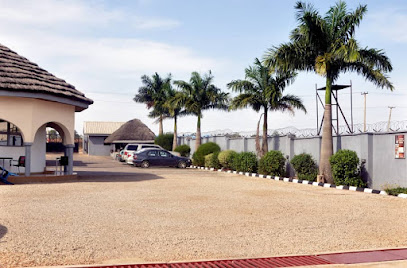
Hotel Sumiram and Indian Restaurant with Tandoor, Chinese and Nigerian cuisine
Discover a culinary fusion at Hotel Sumiram in Jos - where Indian flavors meet Chinese delicacies and Nigerian favorites.
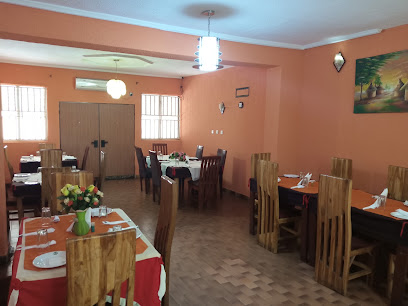
Garassa Food Castle
Experience the vibrant culinary scene at Garassa Food Castle in Kafanchan Junction - where local flavors meet international delights.
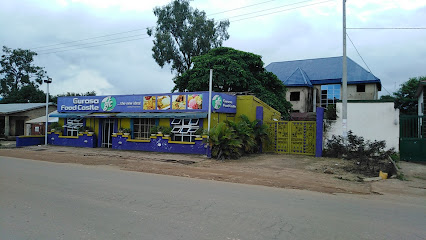
Ngozi Cool Spot
Experience authentic Nigerian breakfast at Ngozi Cool Spot in Kaduna – where flavor meets comfort in every bite.
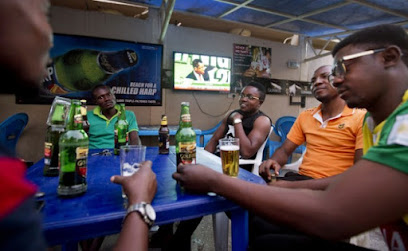
KARISA RISTORANTE
Experience authentic Italian cuisine at Karisa Ristorante in Jos – where every meal is a celebration of flavor and tradition.
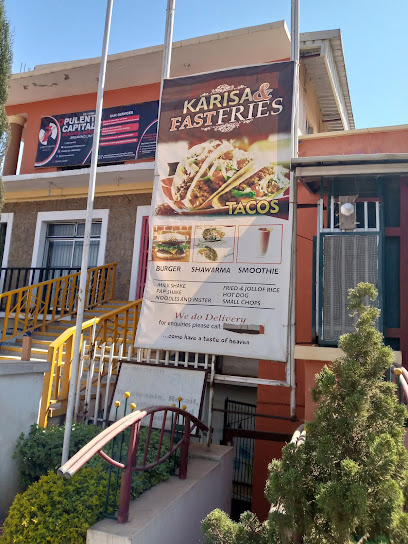
Hot Pot
Discover authentic hot pot dining in Kwoi, Kaduna – where fresh ingredients meet local flavors for an unforgettable culinary adventure.
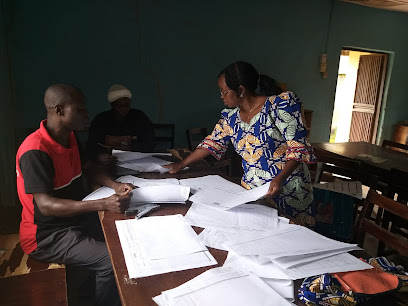
Country hills restaurant
Discover the rich flavors of authentic Arab cuisine at Country Hills Restaurant in Kaduna - a must-visit for culinary explorers.
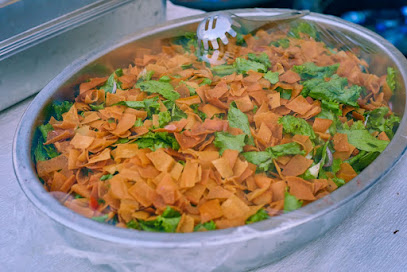
Kano
Explore the rich culinary landscape of Kano, Nigeria's vibrant city known for its delicious traditional dishes and lively dining atmosphere.
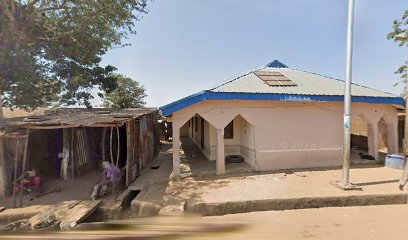
Crown Kitchen
Discover the rich flavors of Nigeria at Crown Kitchen, where authentic local cuisine meets warm hospitality in Mama, Nasarawa.

Blessed Food Restaurant
Experience authentic Nigerian cuisine at Blessed Food Restaurant in Kafanchan – where every meal tells a story!
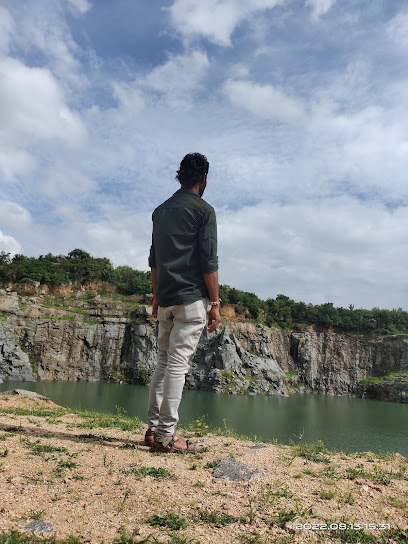
Hannah Wonder
Experience authentic American cuisine at Hannah Wonder in Nasarawa – where every dish tells a story of flavor and comfort.

Mama Ezinne Eatery
Discover authentic Southern Nigerian cuisine at Mama Ezinne Eatery in Kaduna, where every dish tells a story of tradition and flavor.
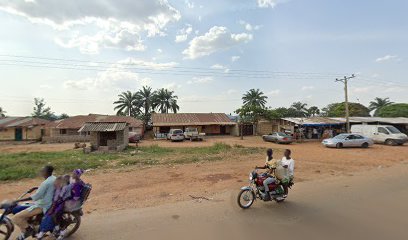
Sunny Restaurant
Experience authentic Nigerian cuisine at Sunny Restaurant in Kafanchan, where every meal tells a story of rich cultural heritage.
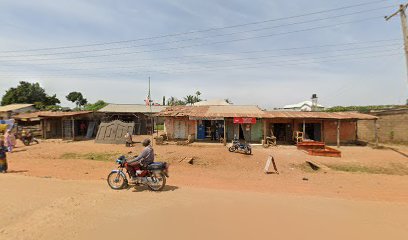
Kings Cafe And Restaurant
Discover exquisite dining at Kings Cafe And Restaurant in Kwara – where local flavors meet exceptional service.

Abbie's Kitchen Delight
Discover the authentic tastes of Nigeria at Abbie's Kitchen Delight in Kafanchan - a fast food haven for culinary enthusiasts.

Markets, malls and hidden boutiques
Kagoro Market
Explore Kagoro Market: A vibrant farmers' market in Kaduna, showcasing fresh produce and authentic Nigerian culture in a lively atmosphere.
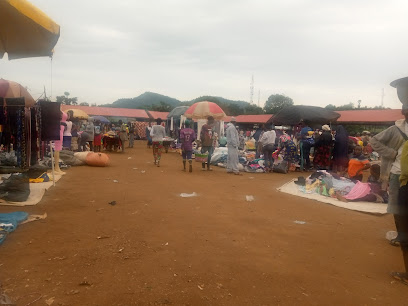
Algazaru ventures
Explore Algazaru Ventures in Kaduna for elegant dresses and modern abayas, reflecting local fashion trends and exceptional quality.
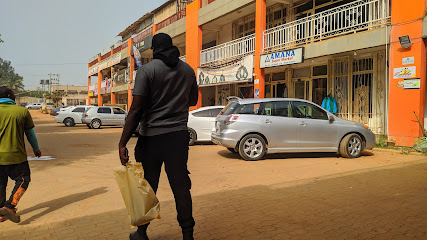
Precious Chioma
Explore Precious Chioma in Nasarawa for exquisite footwear that reflects both style and comfort, perfect for every occasion.

Favour Shop (Mr. Emmanuel Essenetuk alias Conversion's Shop)
Discover unique furniture and local essentials at Favour Shop in Mama, Nasarawa – a true reflection of Nigeria's rich culture.
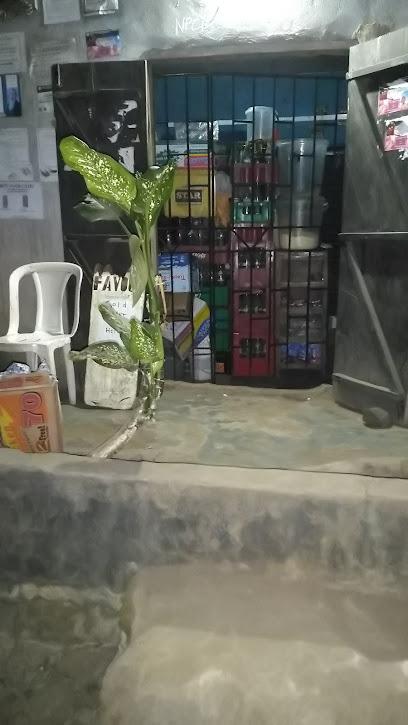
Halima by ngozi cool spot
Discover the heart of Barden Yana at Halima by Ngozi Cool Spot, where local craftsmanship meets vibrant culture in stunning home goods.
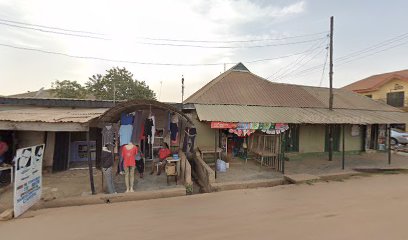
K’s Boutique Supermarket
Explore K’s Boutique Supermarket in Kaduna for a unique shopping experience featuring local goods and culinary delights.
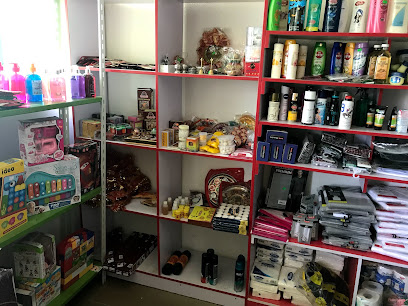
Unique Super Store
Discover the vibrant Unique Super Store in Kaduna, where local flavors meet a diverse shopping experience in the heart of Goni Gora.
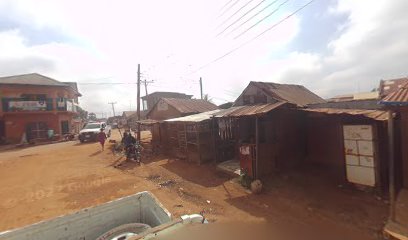
kofar gayan zaria city kaduna state Nigeria
Discover the vibrant culture and craftsmanship of Kofar Gayan, a hidden gem in Zaria City, Kaduna State, Nigeria.

Angelnawry Boutique
Explore Angelnawry Boutique in Kaduna for exquisite formal wear, blending tradition with modern style for every occasion.

Ogbonna Nwachukwu Wears
Explore Ogbonna Nwachukwu Wears, a boutique in Kwara offering a unique blend of traditional and contemporary fashion pieces that celebrate Nigerian culture.

Surajudeen Enterprises
Explore the vibrant offerings of Surajudeen Enterprises, a boutique in Nasarawa, where local craftsmanship meets unique souvenirs.

Zubitex For Adam And Eve Boutique
Explore unique fashion finds at Zubitex For Adam And Eve Boutique in Nasarawa, where local craftsmanship meets contemporary style.

Somethingelse Boutique
Uncover unique fashion treasures at Somethingelse Boutique, a local gem in Chini, Nasarawa, where style meets culture.

Kingfisher Unisex And Kiddies Boutique
Shop stylish clothing for all ages at Kingfisher Unisex And Kiddies Boutique in Kwara, a family-friendly destination in Barnawa Shopping Complex.

Justep Unique Bread
Discover the unique flavors of Kaduna at Justep Unique Bread, a charming general store offering authentic local baked goods.

Essential bars & hidden hideouts
Steps Bar
Experience the vibrant nightlife of Bokkos at Steps Bar, where refreshing drinks and local culture meet in a cozy atmosphere.
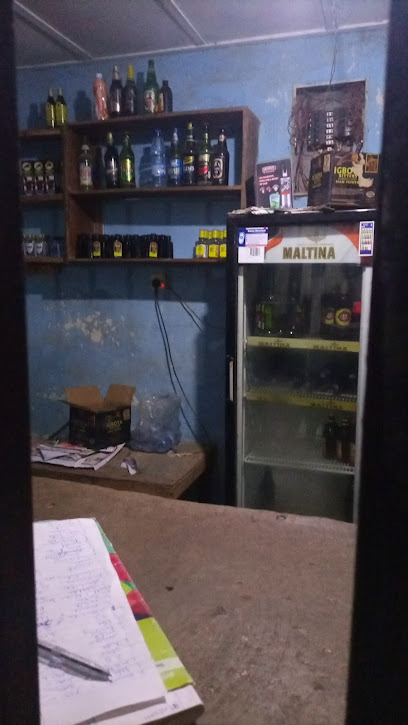
Bilhat Gardens & Bar
Experience the serene beauty of Bilhat Gardens & Bar in Kafanchan, Kaduna, where nature and nightlife come together for a memorable outing.
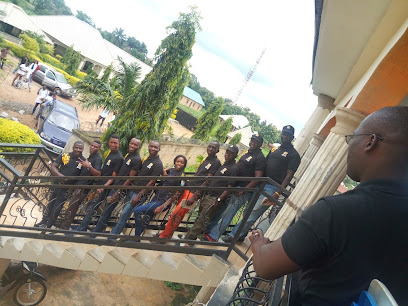
Hill Side Bar
Experience the perfect blend of relaxation and flavor at Hill Side Bar in Plateau, where quality grilled dishes and a serene atmosphere await.
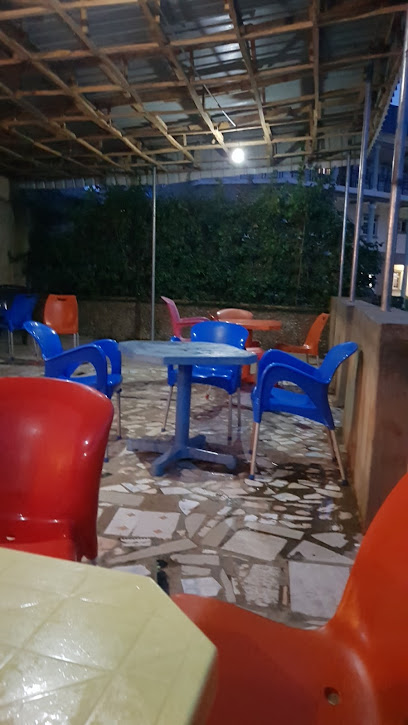
Stephens Garden
Discover a lively bar experience at Stephens Garden, where local culture and vibrant nightlife come together in Kuru, Plateau.
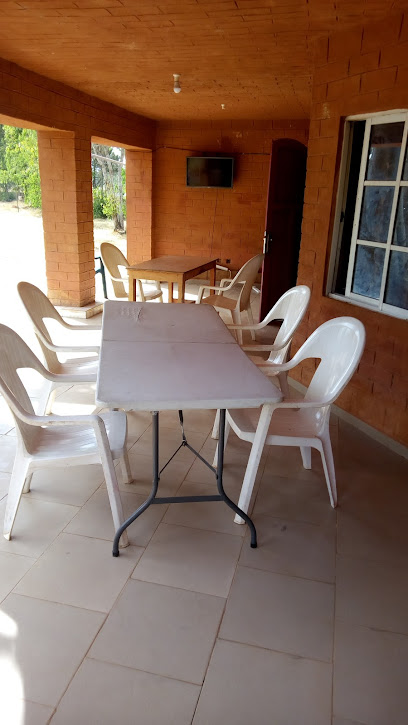
Kaakaky Buka and Bar.
Discover the lively ambiance and local flavors at Akwanga's favorite bar, Kaakaky Buka and Bar, where every drink tells a story.
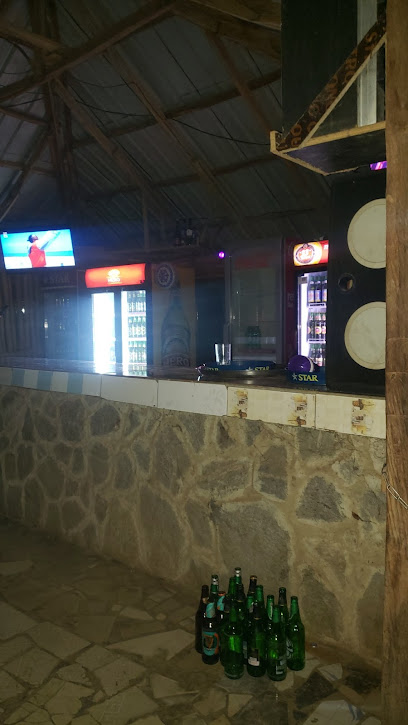
Green House Hotel
Experience the vibrant local culture at Green House Hotel, a charming bar in Vom, Plateau, offering delightful drinks and a welcoming atmosphere.
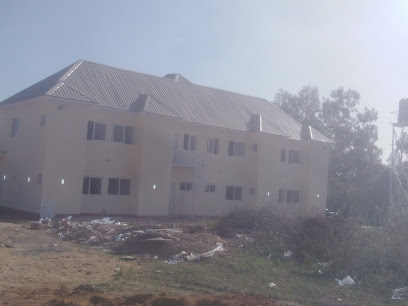
Maru Lodge
Discover Maru Lodge, a delightful bar in Plateau, Nigeria, offering a cozy atmosphere and refreshing drinks for the perfect relaxation experience.

Lady Uk Joint
Discover the vibrant atmosphere of Lady Uk Joint in Nasarawa, Nigeria, where local culture meets refreshing drinks and friendly faces.

Emmenity motel
Discover the charm of Kaduna at Emmenity Motel, a cozy retreat offering comfort, modern amenities, and warm hospitality for every traveler.

NUT bar and lodge Zawan
Experience the lively ambiance and local flavors at NUT Bar and Lodge in Zawan, a perfect spot for relaxation and socializing.

Transformer Charging Port Gwantu
Discover the vibrant atmosphere of Transformer Charging Port Gwantu, where local flavors and friendly service meet for an unforgettable experience.
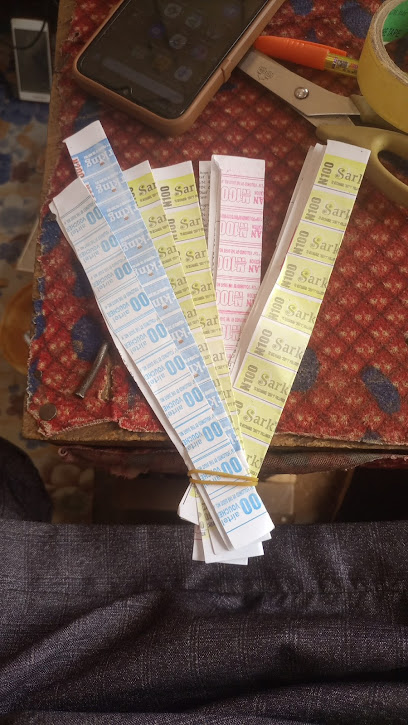
Gwol main Bar
Explore Gwol Main Bar in Plateau for an authentic Nigerian nightlife experience filled with local culture, drinks, and live entertainment.

Bahagos Bar
Discover the lively vibe of Bahagos Bar in Nassarawa State, where refreshing drinks and local culture come together in a vibrant atmosphere.

ZINO'S TAVERN
Discover Zino's Tavern in Rafin Bauna, Plateau, a lively bar offering an inviting atmosphere, delicious drinks, and unforgettable evenings with friends.
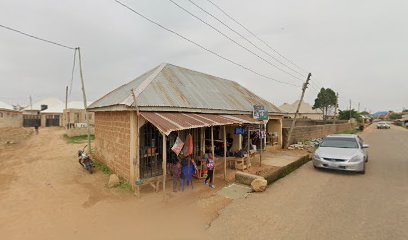
Kaduna Joint Beer Palor
Discover the lively ambiance and diverse drink selection at Kaduna Joint Beer Palor, a must-visit bar in Bahit, Plateau for an authentic local experience.
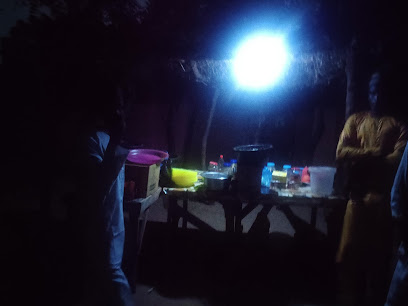
Local Phrases about Kagoro Hills
-
- HelloYakwai
[yah-kwai] - GoodbyeSai wata rana
[sigh wah-tah rah-nah] - YesEh
[eh] - NoA'a
[ah-ah] - Please/You're welcomeDa so
[dah soh] - Thank youNa gode
[nah goh-deh] - Excuse me/SorryZan tafi
[zahn tah-fee] - How are you?Yaya ka ke?
[yah-yah kah kay] - Fine. And you?Yaya. Kana yaya?
[yah-yah. kah-nah yah-yah] - Do you speak English?Ka fada turanci?
[kah fah-dah too-rahn-chee] - I don't understandBan sani ba
[bahn sah-nee bah]
- HelloYakwai
-
- I'd like to see the menu, pleaseZan iya duba menu, don Allah
[zahn ee-yah doo-bah meh-noo, dohn ah-lah] - I don't eat meatBan jin nama
[bahn jeen nah-mah] - Cheers!Aikin sa
[eye-keen sah] - I would like to pay, pleaseZan bada kuwa, don Allah
[zahn bah-dah koo-wah, dohn ah-lah]
- I'd like to see the menu, pleaseZan iya duba menu, don Allah
-
- Help!Taimaki!
[tai-mah-kee] - Go away!Jin hawaye!
[jeen hah-wah-yeh] - Call the Police!Ka kira karamar hukumar
[kah kee-rah kah-rah-mahr hoo-koo-mahr] - Call a doctor!Ka kira dokinta!
[kah kee-rah doh-keen-tah] - I'm lostNa yi gudu
[nah yi goo-doo] - I'm illNa yi yawa
[nah yi yah-wah]
- Help!Taimaki!
-
- I'd like to buy...Zan samu...
[zahn sah-moo] - I'm just lookingIna so na duba
[ee-nah soh nah doo-bah] - How much is it?Shi ne anfi?
[shee neh ahn-fee] - That's too expensiveWani abu ne mafi girma
[wah-nee ah-boo neh mah-fee geer-mah] - Can you lower the price?Zaka iya kasa mafita?
[zah-kah ee-yah kah-sah mah-fee-tah]
- I'd like to buy...Zan samu...
-
- What time is it?Yaya lokaci ne?
[yah-yah loh-kah-chee neh] - It's one o'clockAn bude bakwai
[ahn boo-deh bah-kwai] - Half past (10)Da rabi (goma)
[dah rah-bee goh-mah] - MorningSafe
[sah-feh] - AfternoonRana
[rah-nah] - EveningYamma
[yahm-mah] - YesterdayJibi
[jee-bee] - TodayYau
[yah-oo] - TomorrowGobe
[goh-beh] - 1Daya
[dah-yah] - 2Biyu
[bee-yoo] - 3Uku
[oo-koo] - 4Huɗu
[hoo-doo] - 5Biɗa
[bee-dah] - 6Shida
[shee-dah] - 7Bakwai
[bah-kwai] - 8Takwas
[tah-kwahs] - 9Tara
[tah-rah] - 10Goma
[goh-mah]
- What time is it?Yaya lokaci ne?
-
- Where's a/the...?Ina...?
[ee-nah...?] - What's the address?Yaya adireshin ne?
[yah-yah ah-dee-reh-sheen neh] - Can you show me (on the map)?Zaka iya nuna min (a cikin ramani)?
[zah-kah ee-yah noo-nah meen (ah chee-keen rah-mah-nee)?] - When's the next (bus)?Yaya lokaci ne na dawo (motar)?
[yah-yah loh-kah-chee neh nah dah-waw (moh-tahr)?] - A ticket (to ....)Tikiti (zuwa ....)
[tee-kee-tee (zoo-wah ....)]
- Where's a/the...?Ina...?
History of Kagoro Hills
-
The Kagoro Hills, located in Kaduna State, Nigeria, have been home to the Kagoro people, also known as the Atyap, for centuries. The hills provided a natural fortress and a strategic location for the early settlers. The Kagoro people are known for their agrarian lifestyle, rich oral traditions, and intricate craftwork, which have been passed down through generations.
-
During the early 20th century, the Kagoro Hills came under British colonial rule. This period marked significant changes in the socio-political structure of the Kagoro people. The British established administrative posts and introduced new forms of governance, which often clashed with the traditional authority of the local chiefs. Despite these changes, the Kagoro people managed to preserve much of their cultural heritage.
-
One of the most vibrant cultural expressions in the Kagoro Hills is the annual Afan National Festival. Celebrated on January 1st, the festival marks the end of the harvest season and the beginning of a new agricultural cycle. The event features traditional dances, music, and rituals that honor the spirits of the ancestors and seek blessings for the coming year. The festival is a significant attraction, drawing visitors from all over Nigeria and beyond.
-
Religion plays a crucial role in the life of the Kagoro people. Before the advent of Christianity and Islam, the Kagoro practiced a traditional religion centered around ancestor worship and nature deities. With the arrival of missionaries in the late 19th and early 20th centuries, Christianity gained a foothold in the region. However, many Kagoro people still incorporate elements of their traditional beliefs into their Christian practices, creating a unique syncretic religious experience.
-
In recent decades, the Kagoro Hills have experienced the effects of modernization and globalization. Improved infrastructure, such as roads and telecommunications, has made the area more accessible. However, this development has also brought challenges, including environmental degradation and cultural erosion. Efforts are being made by local and international organizations to balance development with the preservation of the Kagoro Hills' rich cultural and natural heritage.
Kagoro Hills Essentials
-
Kagoro Hills is located in the Kaduna State of Nigeria. The nearest major city is Kaduna, which is approximately 220 kilometers away. The closest airport is the Kaduna International Airport. From Kaduna, you can hire a taxi or take a bus to Kagoro. The journey typically takes around 3 to 4 hours by road. Alternatively, you can travel from Abuja, the capital city of Nigeria, which is about 280 kilometers away. Buses and private car hires are available for this route.
-
Within Kagoro Hills, local transportation options include motorcycles (okadas) and taxis. These are the most common and convenient ways to get around. For a more immersive experience, you can also rent a bicycle. Walking is another viable option, particularly for exploring the scenic landscapes and hills. Be prepared for rugged terrain and ensure you have suitable footwear.
-
The official currency in Nigeria is the Nigerian Naira (NGN). Major hotels and some larger establishments may accept credit cards, but it is advisable to carry cash, especially for smaller shops and local markets. ATMs are available in larger towns, but they may be scarce in rural areas like Kagoro Hills, so it’s best to withdraw sufficient cash before you arrive.
-
Kagoro Hills is generally considered safe for tourists. However, it is advisable to take standard precautions. Avoid walking alone at night and be cautious in unfamiliar areas. There have been occasional reports of petty crimes like pickpocketing, so keep an eye on your belongings. It is recommended to avoid areas with higher crime rates such as certain parts of Kaduna city, especially after dark.
-
In case of an emergency, dial the Nigerian emergency number 112 for immediate assistance. Kagoro has a local police station and basic medical facilities. It is highly recommended to have travel insurance that covers medical emergencies. For minor health issues, there are pharmacies where you can purchase over-the-counter medications.
-
Fashion: Do dress modestly, especially in villages and religious sites. Avoid wearing revealing clothing. Religion: Do respect local customs and traditions. Always ask for permission before taking photographs in religious places. Public Transport: Do be respectful and patient. Don't argue with drivers or fellow passengers. Greetings: Do greet people with a handshake and a warm smile. Respect elders by using titles such as 'Sir' or 'Ma'. Eating & Drinking: Do try local delicacies and accept food offerings graciously. Don't refuse hospitality, as it is considered impolite.
-
To experience Kagoro Hills like a local, visit the Kagoro Cultural Festival, which takes place annually and showcases traditional music, dance, and food. Engage with locals, as they are often friendly and willing to share stories about their culture and history. Don't miss the opportunity to hike the hills; the views are breathtaking. Also, try the local cuisine, including dishes like tuwo shinkafa (rice pudding) and miyan kuka (baobab leaf soup).
Nearby Cities to Kagoro Hills
-
Things To Do in Abuja
-
Things To Do in Kaduna
-
Things To Do in Kano
-
Things To Do in Enugu
-
Things To Do in Asaba
-
Things To Do in Onitsha
-
Things To Do in Mamfe
-
Things To Do in Yola
-
Things To Do in Bamenda
-
Things To Do in Owerri
-
Things To Do in Mbouda
-
Things To Do in Benin City
-
Things To Do in Dschang
-
Things To Do in Bafoussam
-
Things To Do in Foumban






